Things you must know to protect your associations and be an effective board member

While you may think it’s a straightforward and easy gig, being an HOA board member actually carries a lot of weight and responsibility. Serving as a board member means you have the power to help shape your community.
According to the National Association of Realtors, nearly 73.9 million Americans lived in communities that had a homeowner’s association or condominium board1. Thus, the decisions you make as a board member will have a direct impact on your community’s wellbeing and the people that reside in it.
It’s important that you are serving your community in the best capacity possible. Part of serving your community means upholding your fiduciary responsibility to the association and underlying members (your fellow homeowners).
Being a good board member means understanding your fiduciary duties, how you can make decisions that fulfill those duties, and understanding your scope of authority.
If you want to better protect your association and become a more effective board member, here are a few things to consider.
What Does Fiduciary Duty Actually Mean?
Being a board member means you have a fiduciary duty to the organization in which you serve. In the context of a homeowner’s association, this means you have a duty to make decisions and act in the best interest of the association and its subsequent members.
Compare being a board member to other common professions, such as an attorney or financial advisor, that also have a fiduciary duty to their clients.
If you were a customer, wouldn’t you want your lawyer or financial planner to make suggestions, provide advice, and make decisions that are in your best interest? The same holds true for board members serving an HOA.
All members have a duty to act in good faith, make informed decisions, and work within the scope of their authority. It’s also important you read and understand your association’s governing documents including, but not limited to, the articles of incorporation, HOA bylaws, and declaration of covenants, conditions, and restrictions (CC&Rs).
Even though most homeowner’s associations are structured as non-profit corporations with board members often serving on a volunteer basis, your power still comes from a position of trust.
The law requires that you take the role seriously and understand the scope of your position so that you can make more informed decisions for the benefit of the HOA.
There are often three pillars that set the foundation for a board member’s fiduciary duty:
- Acting in good faith,
- Making informed decisions, and
- Working within the scope of your authority.
I. Acting in Good Faith
Sometimes referred to as a “duty of loyalty,” acting in good faith is one of the three pillars that you should consider as your fiduciary duty being a board member. This means you are always acting in the best interest of the entire association.
Similarly, acting in good faith also means avoiding conflicts of interest. For example, it wouldn’t be appropriate to give special treatment to your neighbor who just happens to also be a relative.
It would also be inappropriate to vote down an issue presented to the board because you have a previous history or biases toward a particular person or project. While sometimes poor outcomes can result from certain decisions, those decisions should still have been made in good faith.
II. Making Informed Decisions
As a board member, you can’t always scrutinize every single piece of information presented to you at a granular level. In fact, it would be impossible to thoroughly review all information relevant to make numerous decisions and their potential impact to the association.
However, part of your fiduciary duty as a board member is still to make reasonably informed decisions. Ultimately, the HOA board of directors is responsible for the final ruling on most matters. Many decisions that you may need to make may be a tough pill to swallow.
For example, some situations may include imposing fines on a homeowner for violations within the covenants, conditions, and restrictions helping govern the community. At times it also may be warranted to file a judgement against a homeowner for past due assessments.
Keep in mind that most associations indemnify board members for legal fees to help protect them and their personal assets if decisions they make while serving as a board member. Some even have a separate insurance rider or policy.
That said, it’s important you use sound judgement and use what evidence you can to support any decision that you make, for the benefit of the association.
III. Acting Within Your Scope of Authority
The third pillar under your fiduciary duty as a board member is to only act within the scope of your position. This means understanding the extent to your authority by reviewing the governing documents of the association and what limitations you have under those guidelines.
Furthermore, it’s important to understand your role and authority under the scope of overarching regulation, such as state and federal guidelines. For example, if your community doesn’t allow pets, this does not supersede laws allowing homeowners service animals.
It’s important you make sure to enforce governing documents accordingly and consistently. As long as you don’t work outside the scope of your authority and put the interest of your community first, you will be a much more effective board member.




